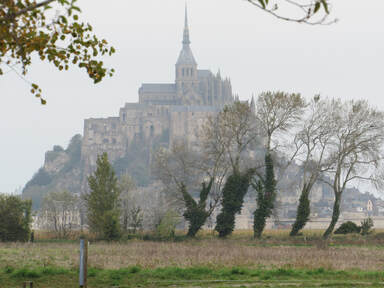 This will be my last post about the French Revolution. I’m surrendering to the reality that picking various aspects of the conflicts and talking about them does not do justice to what happened in France during the decade of 1789-1799. I’ve read a couple of dozen in-depth articles from the Encyclopedia Britannica and three books (the best of which is The French Revolution, A Quick Immersion, by Jay M. Smith), and I am overwhelmed by the difficulty of putting all the pieces together into a coherent picture. My review of the French Revolution has been fascinating and there are many parallels between it and the current US national environment, but I’m out of my league on this one. I do want to return to why I was interested in the first place: the French Revolution’s test for an individual’s loyalty and patriotism. It turned out, in my opinion, that the “test” had nothing to do with loyalty or patriotism, but had everything to do with the fear of punishment. It begins with recognizing and valuing the inherent rights of individuals. The principles of universal individual rights consumed several 18th century philosophers and theorists, including those centered around Paris, like Montesquieu, Voltaire, and Rousseau. For me, I recognize the usual key words, like Life, Liberty, and the Pursuit of Happiness; freedoms of religion, speech, press, assembly, petition, and the right to keep and bear arms; the right to due process and to having counsel (remember Gideon’s Trumpet from high school?). Rights can be expressed in different ways. FDR, for example, laid out four fundamental freedoms: the freedom of speech and expression, freedom of worship, freedom from want, and the freedom from fear. Today, many other things are referred to as “rights” but I’m not sure they all qualify. In the second half of the 1700s, France was a hotbed of discussions about individual rights, and it was an advantage for the Enlightened Leaders to have a populace familiar with the ideas. On August 29, 1789 (two months after the storming of the Bastille), the newly formed National Assembly voted for a document that became the guiding light for the Revolution: the Declaration of the Rights of Man and the Citizen. It included some familiar and some unfamiliar items: Men are born free and equal in respect to their rights, which included liberty, property, security, and resistance of oppression; freedom to speak, write and publish; freedom to participate in setting taxes; the right of citizens that all agents [representatives of local and federal governments] should be held accountable; and the right to property. But every time a “right” is cited, it’s followed by a specific or general caveat—that the rights of the society are superior to the rights of individuals. Specifically, the freedom of speech is absolute, unless it disturbs the public order established by law; the freedom of property is absolute, except in cases of “evident public necessity”, according to law; political liberty consists in the power of doing whatever does not injure another, with limits set by law; every man is presumed innocent until convicted, as provided by law. In general, individual rights have limits or may be applied differently when individuals choose to live and function together, while laws are determined by the “will of the people”. Remembering that the Declaration was produced by a nation only lately removed from hundreds of years of feudalism and absolute monarchies, the Declaration of the Rights of Man and the Citizen was enthusiastically received, supported and included in the upcoming French constitutions: the National Assembly of 1789-91, the National Legislative Assembly of 1791-92, and the National Convention of 1792-95, which produced a Declaration of Rights in 1793 that included the right of insurrection as “the most sacred of rights and the most indispensable of duties” whenever the government “violates the rights of the people”. There was also a version for The Directorate, which was the French governing body of 1795-99. Napolean produced his Civil Code in 1804, something he felt was his greatest accomplishment. They were all modeled after the document of 1789. There is no question that the delineation and declaration of a code for Rights is a dramatic and enduring legacy of the French Revolution. Recall that the United States’ Bill of Rights was accepted in December of 1791, so there’s no doubt that each nation was influenced by what was happening across the Atlantic. This emphasis and recognition of individual and national rights makes it very hard for me to understand the following: - the National Assembly issued a decree on August 10, 1789, that called on all local militias and public officials to be vigilant, to keep lists of known “disreputable persons”, and to take all measures necessary to preserve the public peace. - the National Assembly splintered into political parties devoted to undermining its own unity, which resulted in the passionate Revolutionaries siting on the left-most side of the gallery and their opponents (the more conservative delegates) seated on the right, which originated the common usage of the “left wing” and “right wing” in politics. These parties were ruthlessly hostile and antagonist towards each other. - the National Assembly nationalized the considerable landholdings of the Roman Catholic Church in France, as well as its gold and silver. It also decreed the abolishment of monastic vows, requiring that supreme loyalty be directed toward the nation and not a religious institution. - The Civil Constitution of the Clergy, in 1790, made the clergy of the Catholic Church civil servants of the government, requiring them to take an oath of loyalty to the nation and not to the Church (France was overwhelmingly a Roman Catholic nation, so this was not a popular move. The Pope didn’t like it, either. Nonetheless, it was enforced.). - the exile of 30,000 priests and the killing of hundreds more. Many priests were forced to marry against their will, and to perform Mass after they had denied allegiance to the Church. Many more were imprisoned or deported to penal colonies. - the renaming of cathedrals (Notre Dame was called “the Notre Dame Temple of Reason”), and the forbidding of the ringing of church bells, religious processions and displays of the Christian cross. - on July 17, 1791, a protest against the National Assembly’s actions resulted in the Champ de Mars massacre, where National Guard troops killed dozens of bystanders and unarmed protesters, and resulted in the Assembly banning political clubs and collective protests. - the establishment of “surveillance committees” across France to watch for, identify and incarcerate “suspects” who were against the revolution or its principles, and the establishment of a special Revolutionary Tribunal to judge and execute those “suspects”. They were accused of “political crimes”. - on August 30, 1792, home-to-home searches were authorized for the “requisition” of guns and ammunition, and the rooting out of any remaining counter-revolutionaries, a term that had just been coined. - the appropriation of buildings owned by people [mainly nobles] who had immigrated to other countries during the revolution, or that were owned by the Church. They were converted to foundries or barracks for soldiers. Horses and draught animals were “requisitioned’; women were conscripted to work in hospitals, or to make uniforms or tents. - in Vendee, a section of France south of Brittany that had previously surrendered during a British attack, Revolutionary generals indiscriminately slaughtered men, women, and children as punishment. Whole villages disappeared in the carnage. Boats were loaded with shackled captives and sunk in the Loire river; thousands were drowned. In all, the revolutionary forces were estimated to have killed over 100,000 people. - in December, 1793, local Jacobins (a popular Revolutionary society) were sanctioned to execute a thousand citizens of Toulon in punishment for their non-revolutionary views. - in August of 1793, the Law of Suspects was passed. It demanded that any person be identified as a “suspect” if they were against the revolution or the National Convention, and to then be brought before the Revolutionary Tribunal for judging. Local “surveillance committees” again roamed the towns. - the Committee of Public Safety, a committee of the National Convention, not only punished “traitors” but “even those who were indifferent” to revolutionary causes. The Committee developed an obsessive and violent desire to “purify” the political ground and to “cleanse” the Republic of France of those who had betrayed it before or those who might betray it in the future. Two former leaders of the revolutionary movement were guillotined for having been “moderates” in the Assembly. And, lastly, - the passing of the Law of 22 Prairial on June 10, 1794, (Prairial was the name of a month in the new Revolutionary Calendar), that allowed the Revolutionary Tribunal to hear cases of people accused of “slandering patriotism”, “seeking to inspire discouragement”, “spreading false news”, and “depraving morals, corrupting the public conscience and impairing the purity and energy of the revolutionary government”. It required all citizens to identify, denounce, and bring to justice these “suspects”, making rumors sufficient for bringing someone to trial. It limited the trials by the Tribunal to three days; it was prevented from calling witnesses; it was not allowed to provide defense counsel for the accused; it established the principle of the accused being guilty unless proven innocent; and it required the Tribunal to come to only one of two possible verdicts in any case – acquittal or death. How’s that for upholding the inherent and universal Rights of Man? It is estimated that more than 16,000 people were sentenced to death by guillotine or hanging, while ten thousand more died in prisons waiting for trial. The total number of casualties is estimated to be from 250,000 to 500,000. Many were leaders of the Revolution one year, who had their heads cut off the next. Many had served faithfully in the Assembly, just to have their heads cut off by the Convention. Whole political societies were started, became dominant, and then were assassinated out of existence. It was a time of great exuberance in new freedoms, but also a time of great, great fear. It resulted in absolute, pervasive, and savage intolerance. France became a nation set on destroying itself. Besides individuals being punished solely for personal beliefs and convictions, I saw other warnings for our current political and social situations:
0 Comments
Leave a Reply. |
AuthorDon Willerton has been a reader all his life and yearns to write words like the authors he has read. He's working hard at it and invites others to share their experiences. |

 RSS Feed
RSS Feed